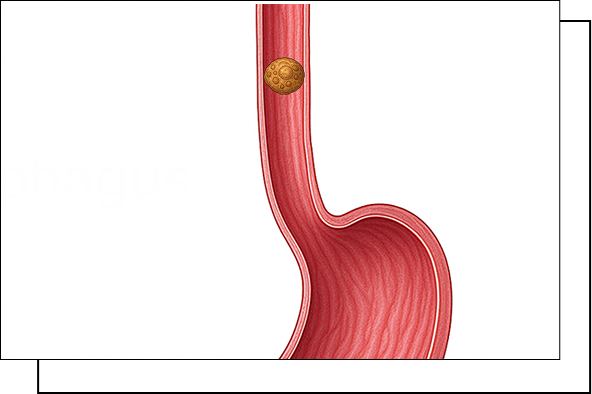Granular Cell Tumor Doctor in Kolkata
Home > Esophagus Diseases > Granular Cell Tumor
Overview
A granular cell tumor (GCT) of the esophagus is a rare, slow-growing tumor that usually arises from nerve cells within the esophagus. These tumors are composed of specialised cells known as granular cells. While esophageal GCTs are typically benign (noncancerous), they can cause concerning signs in some cases.

Granular Cell Tumor Symptoms
Due to being asymptomatic, Esophageal granular cell tumors often go unnoticed in their early stages. However, as the tumor grows, it may lead to:
Difficulty swallowing (dysphagia)

Chest pain
Regurgitation
Weight loss
Book An Appointment
Causes and Risk Factors
The exact cause of granular cell tumors is not well understood, though they may arise from Schwann cells, which are part of the nervous system. Other risk factors include:
Age, mostly people between 40 and 60 years
More common in females
Chronic irritation or injury
Smoking and excessive alcohol consumption
Evaluation
Diagnosing an esophageal GCT typically involves a combination of procedures:
CT scan
Biopsy
Endoscopy/Endoscopic ultrasound (EUS)
Historical assessment

Treatment & Management
The approach to treating an esophageal GCT depends on various factors, including the tumor size, location, and presence of symptoms. Some common treatment options provided by Dr. Debjoy Sau, a leading esophageal cancer specialist in kolkata, are:
Endoscopic resection
Surgical excision
Active surveillance
Book An Appointment
FAQs
Know Your Answers
Can granular cell tumors be cancerous?
While granular cell tumors are typically benign, they can sometimes present symptoms similar to esophageal cancer. It’s essential to confirm this with a biopsy.
Are there any medications to treat esophageal GCTs?
Currently, there are no medications specifically proven to treat esophageal GCTs.
What is the survival rate for esophageal cancer at stage 1?
The survival rate for esophageal cancer stage 1 is relatively high with early treatment.
What specialists treat esophageal GCTs?
Gastroenterologists or esophageal surgeons typically manage esophageal GCTs. In some cases, consultation with an oncologist might be necessary.
Where can I find an esophageal cancer specialist in Kolkata?
Consult with Dr. Debjoy Sau, an experienced gastroenterologist in Kolkata who specialises in esophageal conditions, including GCTs.

